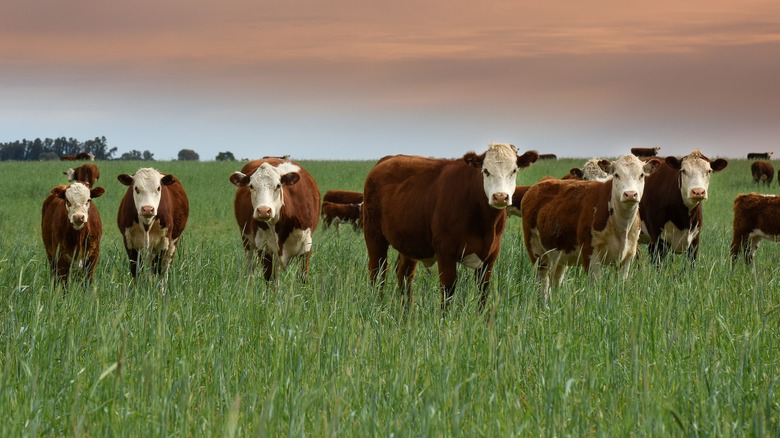Can Climate Change Increase The Spread Of Infectious Disease?
The earth's rising temperature due to climate change is forcing animals all over the world to find new places to call home. As a result, there's an increased risk that viruses may jump between species — including humans. This theory is based on a study published in Nature on April 28. It indicates that if the world warms just 3.6 degrees Fahrenheit, we can expect 3,139 types of mammals to inhabit new regions over the next 50 years, and highly populated areas aren't off-limits (per WebMD). During this migration, many species will cross paths for the first time, inciting an estimated 4,000 viruses to spread between them.
The study didn't include migration patterns of birds or marine animals but suggested that bats will cause Africa and Southeast Asia to be hit the hardest because of bats' ability to fly long distances. "When a Brazilian free-tailed bat makes it all the way to Appalachia, we should be invested in knowing what viruses are tagging along," Colin Carlson, the study's lead author and an assistant research professor at the Center for Global Health Science and Security at Georgetown University Medical Center, said in a news release.
Can prediction lead to prevention?
According to WebMD, researchers used computer models to generate scenarios and consequent predictions. In the news release, lead author Colin Carlson observed, "At every step, our simulations have taken us by surprise. We've spent years double-checking those results, with different data and different assumptions, but the models always lead us to these conclusions. It's a really stunning example of just how well we can, actually, predict the future if we try."
Co-lead author Gregory Albery, a postdoctoral fellow in the Department of Biology in the Georgetown University College of Arts and Sciences, says that this study provides more insight into how climate change threatens the health of both humans and animals. International health agencies are encouraged to study how wildlife disease syncs with the environmental change taking place in real-time, notes WebMD.
"It's unclear exactly how these new viruses might affect the species involved, but it's likely that many of them will translate to new conservation risks and fuel the emergence of novel outbreaks in humans," Albery said (via EurekAlert).


